The fighter is to be always single-minded with one object in view: to fight, looking neither backward nor sidewise. To go straight forward in order to crush the enemy is all that is necessary for him.
D.T. SUZUKIThe claim of the Zen followers that they are transmitting the essence of Buddhism is based on their belief that Zen takes hold of the enlivening spirit of the Buddha, stripped of all its historical and doctrinal garments.
More D.T. Suzuki Quotes
-







-






If you have attained something, this is the surest proof that you have gone astray. Therefore, not to have is to have, silence is thunder, ignorance is enlightenment.
D.T. SUZUKI -






The claim of the Zen followers that they are transmitting the essence of Buddhism is based on their belief that Zen takes hold of the enlivening spirit of the Buddha, stripped of all its historical and doctrinal garments.
D.T. SUZUKI -





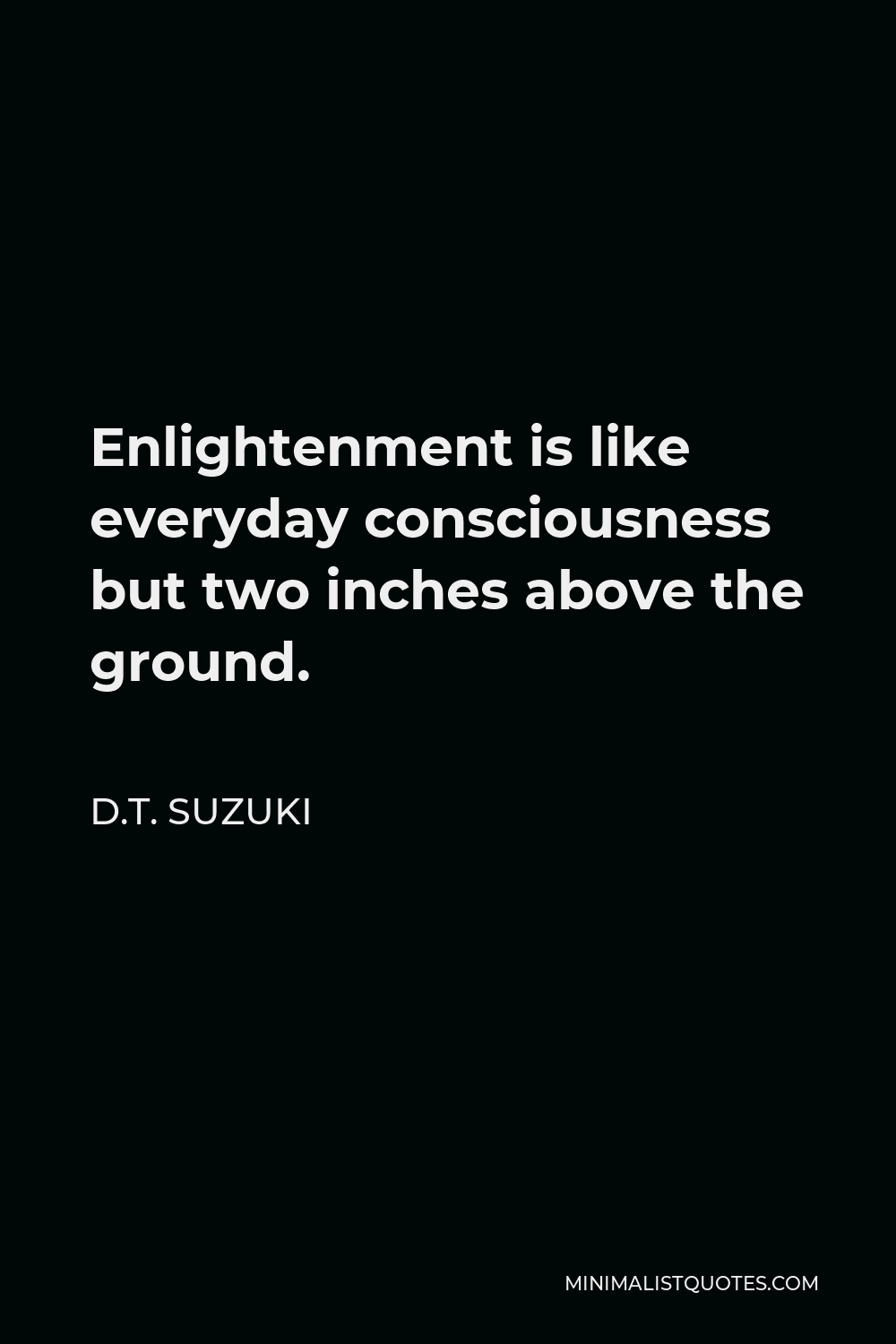
Enlightenment is like everyday consciousness but two inches above the ground.
D.T. SUZUKI -







I am an artist at living – my work of art is my life.
D.T. SUZUKI -





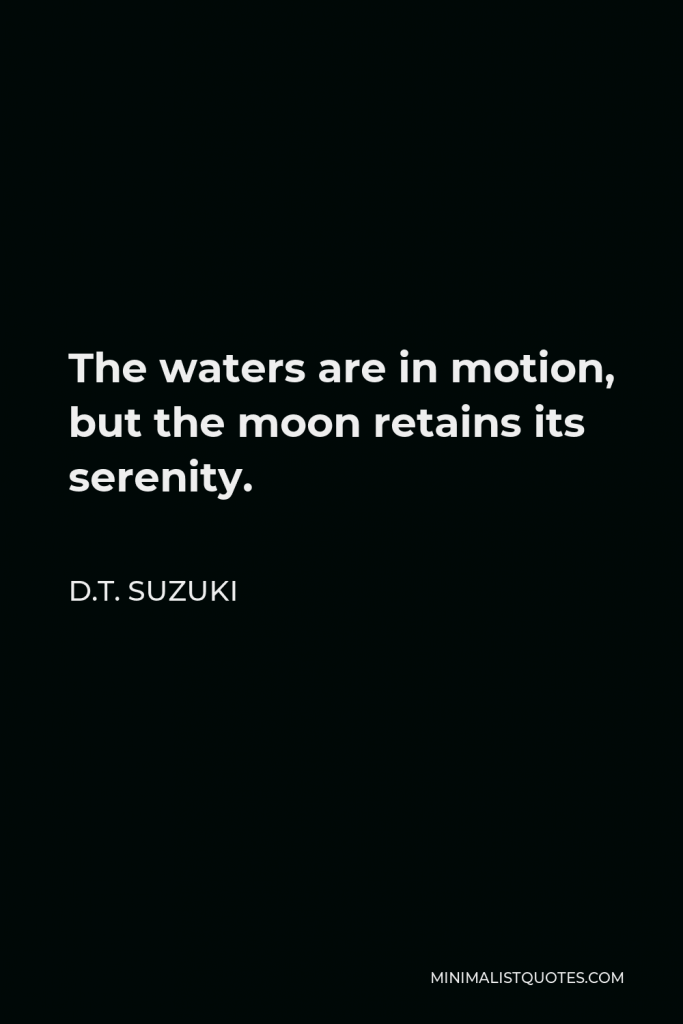

The waters are in motion, but the moon retains its serenity.
D.T. SUZUKI -





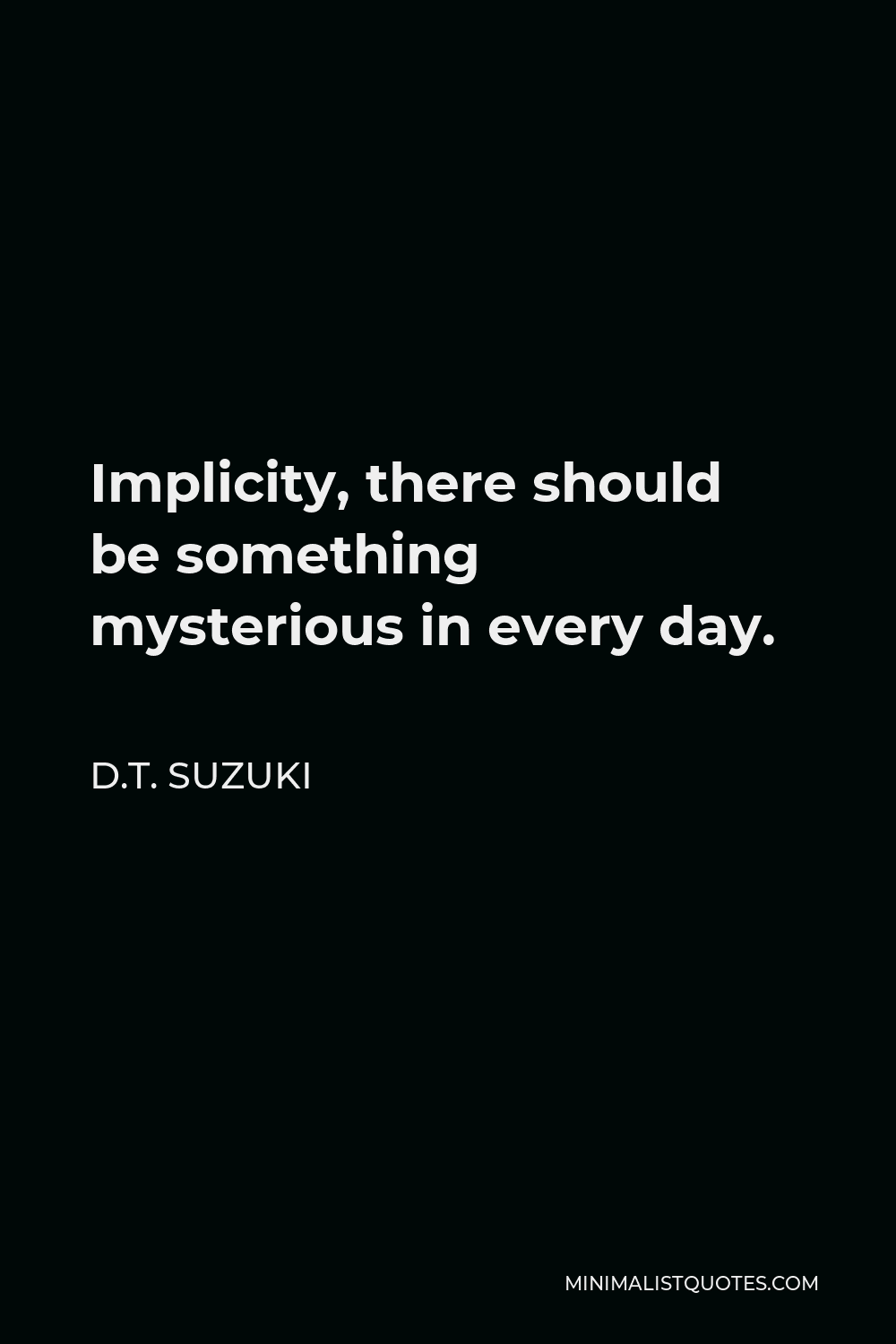
Implicity, there should be something mysterious in every day.
D.T. SUZUKI -





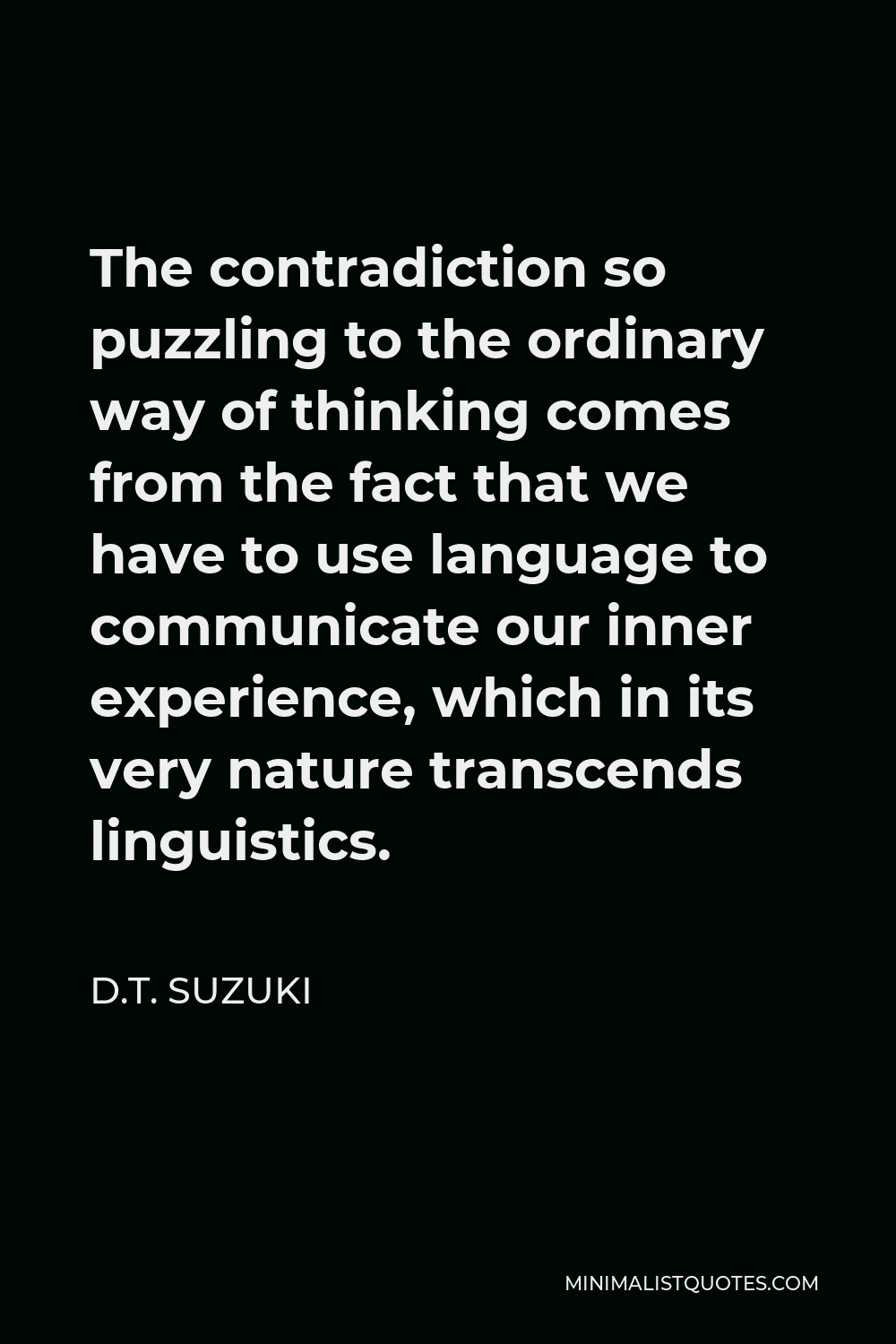
The contradiction so puzzling to the ordinary way of thinking comes from the fact that we have to use language to communicate our inner experience, which in its very nature transcends linguistics.
D.T. SUZUKI -






Dhyana is retaining one’s tranquil state of mind in any circumstance, unfavorable as well as favorable, and not being disturbed or frustrated even when adverse conditions present themselves one after another.
D.T. SUZUKI -





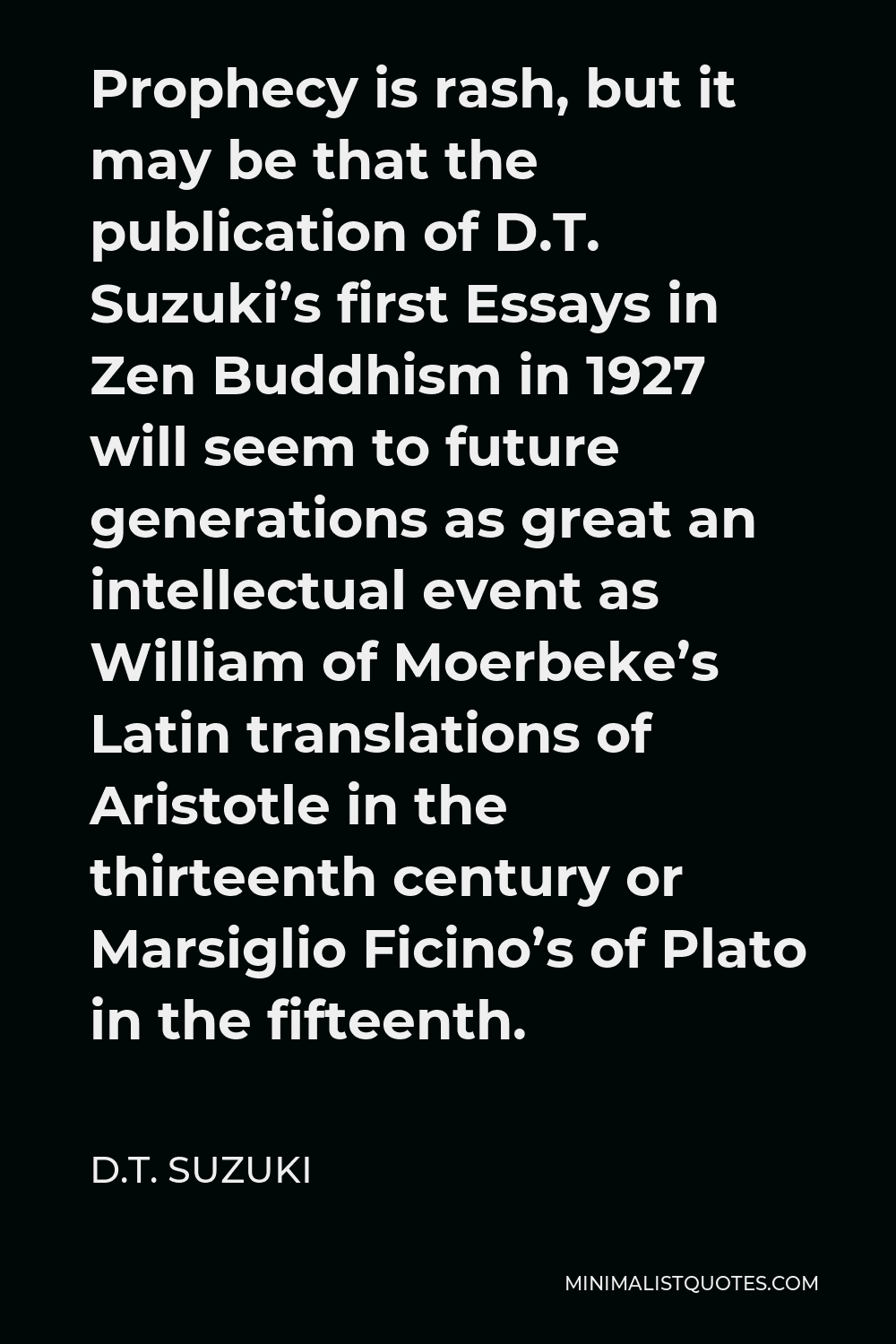
Prophecy is rash, but it may be that the publication of D.T. Suzuki’s first Essays in Zen Buddhism in 1927 will seem to future generations as great an intellectual event as William of Moerbeke’s Latin translations of Aristotle in the thirteenth century or Marsiglio Ficino’s of Plato in the fifteenth.
D.T. SUZUKI -







The more you suffer the deeper grows your character, and with the deepening of your character you read the more penetratingly into the secrets of life.
D.T. SUZUKI -





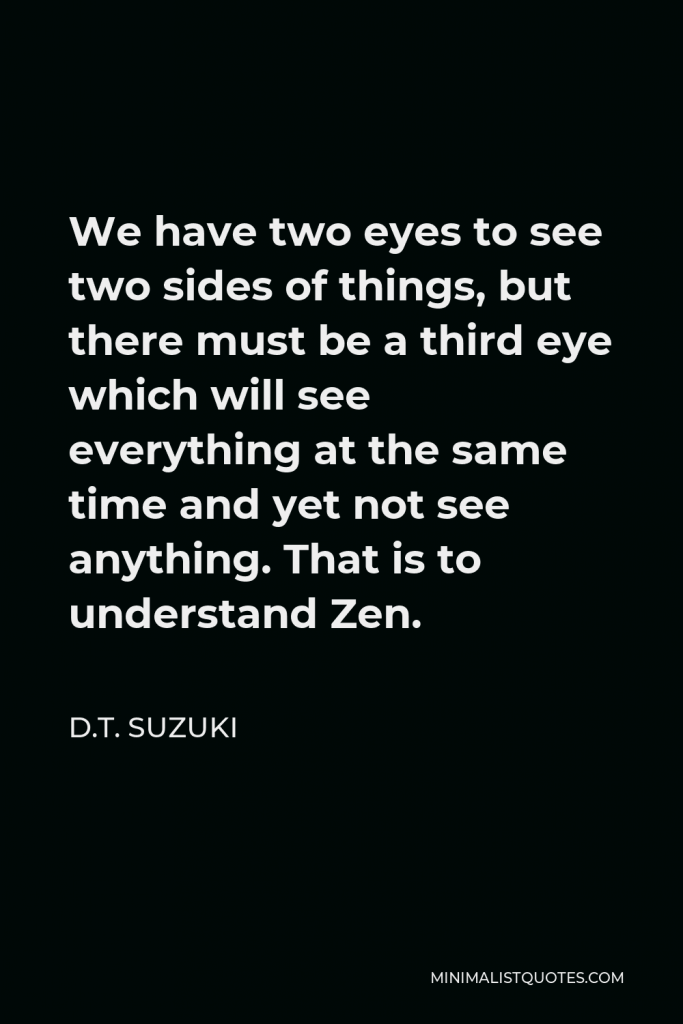

We have two eyes to see two sides of things, but there must be a third eye which will see everything at the same time and yet not see anything. That is to understand Zen.
D.T. SUZUKI -





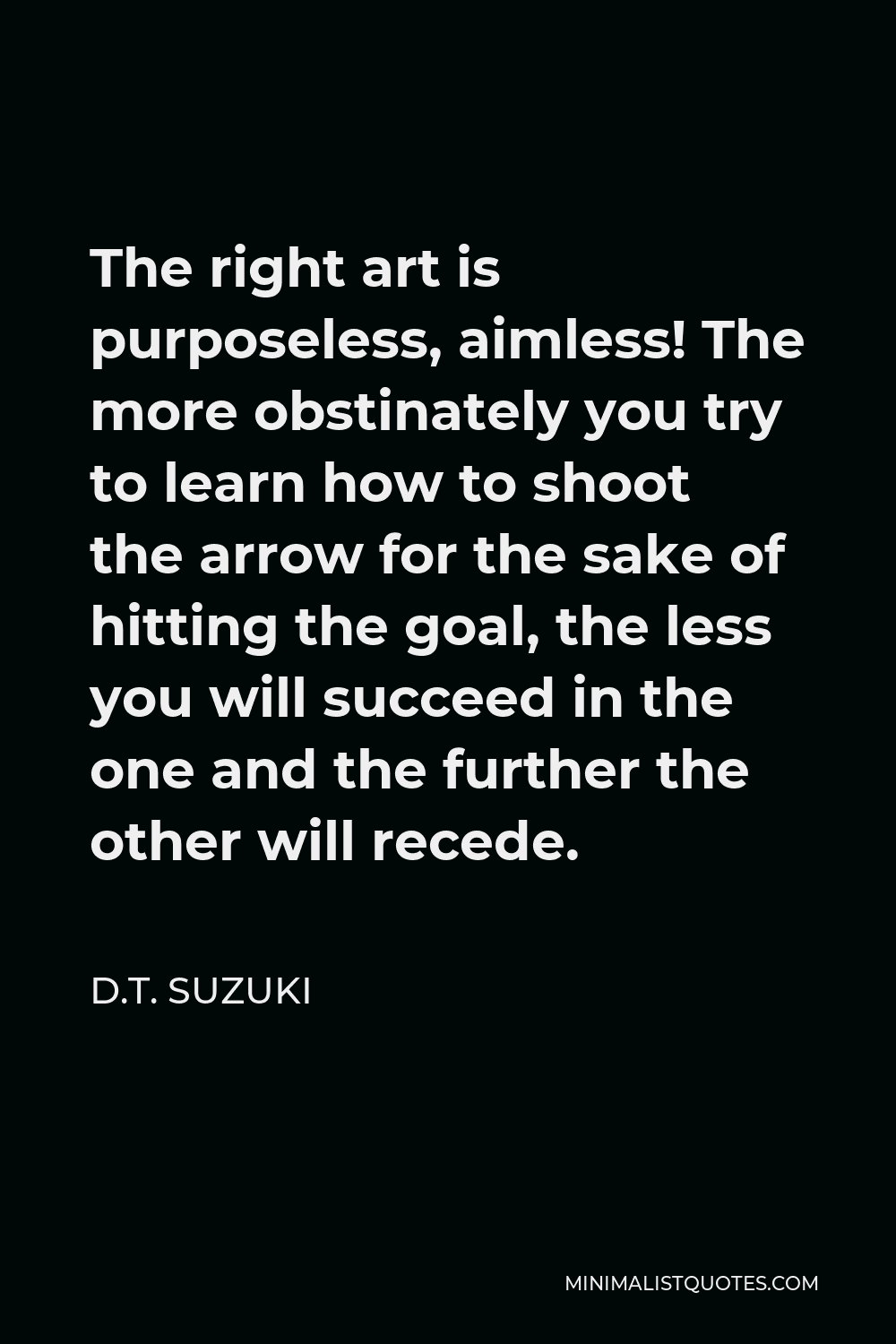
The right art is purposeless, aimless! The more obstinately you try to learn how to shoot the arrow for the sake of hitting the goal, the less you will succeed in the one and the further the other will recede.
D.T. SUZUKI -






Unless it grows out of yourself no knowledge is really yours, it is only borrowed plumage.
D.T. SUZUKI -






Zen is the spirit of a man. Zen believes in his inner purity and goodness. Whatever is superadded or violently torn away, injures the wholesomeness of the spirit. Zen, therefore, is emphatically against all religious conventionalism.
D.T. SUZUKI -





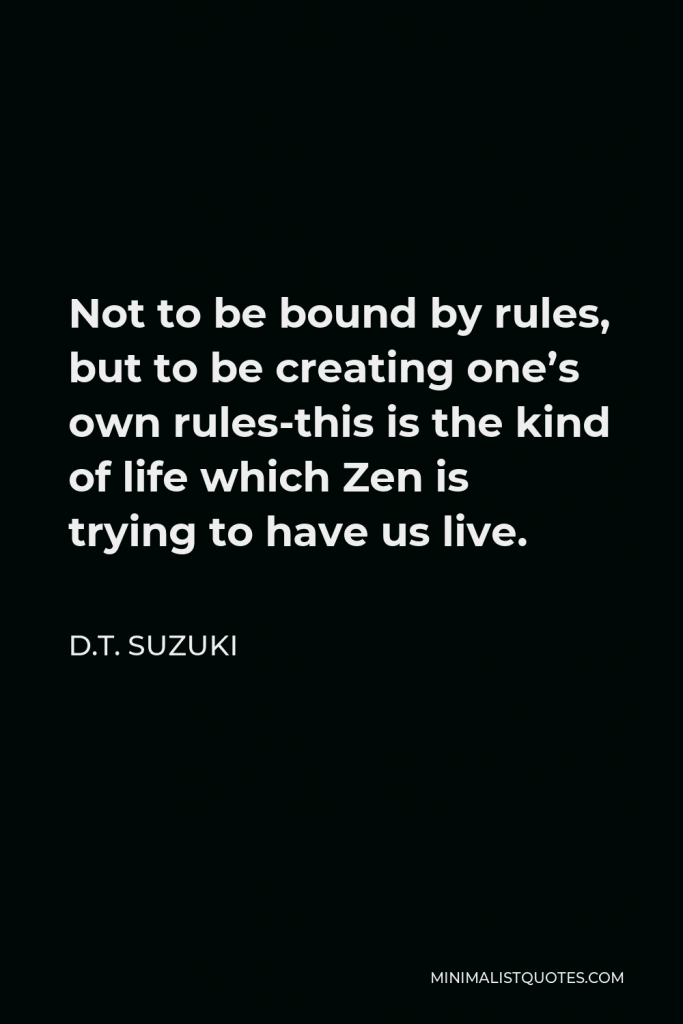

Not to be bound by rules, but to be creating one’s own rules-this is the kind of life which Zen is trying to have us live.
D.T. SUZUKI






